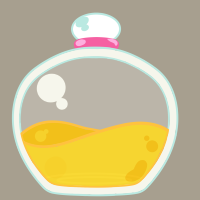May 28, 2025
To:Bubbles
I had an experience where I thought I was dying due to my actions caused by the thought that "if I let myself go, I'll feel better". Perhaps self-destruction can "seem" fun in the short run... but it wasn't for me. And it isn't fun for Mary, either.
Atlas sees that Mary isn't just indulging herself; she's trying to "fill the void" by trying to stuff herself with her cravings.
Two, Atlas is thinking in a general perspective here, implying that Mary should not behave in a self-destructive manner EVEN IF the world is ending, that she should never abandon self-care. He doesn't WANT to see her ruin herself just because the world is ending soon. This is more an instinctive belief in "I don't want to see this girl unhappy" rather than "this is the rule and you should follow it".
He is arguing against the general belief that "everyone is going to die one day, so we should just do whatever we want". He is instinctively arguing against the belief of "the ends justify the means".
Is he perfectly right? No. But is he looking out for her? Yes. It doesn't matter to him whether or not there's an alternative perspective; he is saying this because he instinctively cares for her wellbeing.
And Mary could have denied him, but she herself came to believe in what he believed in because it FELT right to her. Had it been someone else, they could have easily shot Atlas's assertion down. But her feelings AGREED with him.
I don't believe logic is ever truly "logic"... every individual human being's logic is connected to their emotions. So Mary's feelings agreed with Atlas's logic here.
Again, perhaps a reader can interpret everything in this story as the author (I guess me) saying "this is right and everyone should believe this", but it's not. It's just one way of thinking. Maybe the logic doesn't check out for everyone, but it's this mindset that allows me to resist self-destruction, so that's why I wrote about it: because it works for ME.
And yes, here, he is JUST calling her out. That's the point; he is simply stopping her from harming herself further. He doesn't exactly understand what's wrong with her.
This was the first time Atlas spoke of his beliefs with someone else, and it was only because he was concerned. He isn't just someone who would shove his beliefs down someone's throat and think he is right; he sees something in Mary that indicates to him that she isn't happy with her decisions. So he speaks.
![]()








![]()







